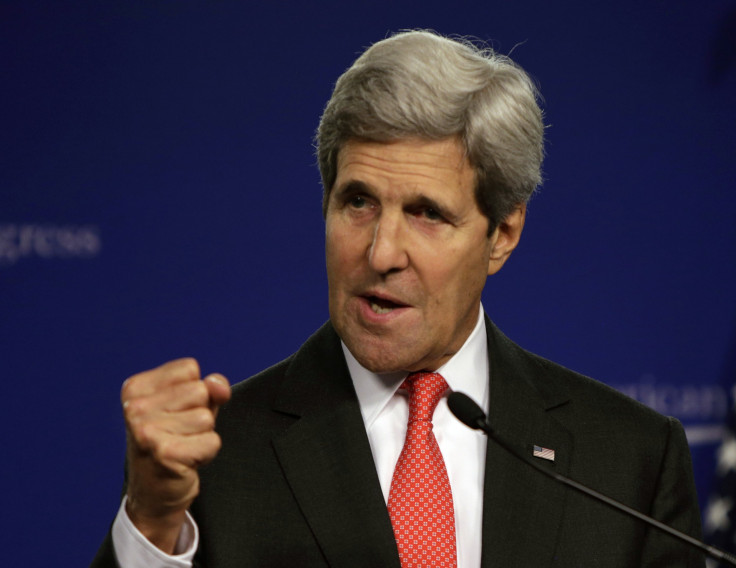Kerry Expected To Raise Unresolved Issues On Trip To India

U.S. Secretary of State John Kerry will leave for India on July 30 to co-chair the fifth U.S.-India strategic dialogue with India’s Foreign Minister Sushma Swaraj, according to reports. His visit marks the first U.S. cabinet-level visit since Narendra Modi, leader of the Bharatiya Janata Party, was elected as the country's prime minister.
Kerry, who will be accompanied by officials from various U.S. agencies, including the Department of Energy, Department of Homeland Security, and NASA, will be visiting India at a time when relations between the two countries have been tense following India’s refusal to sign a Trade Facilitation Agreement, or TFA, in Geneva on Friday.
The TFA, as a part of broader global trade reforms, was formulated in December 2013 during the ninth ministerial conference of the World Trade Organization, or WTO. The TFA, through a worldwide reform of custom rules, aims to ease trade relations between countries and create, according to some estimates, over 20 million jobs worldwide.
India, however, has threatened to block the TFA if a clause limiting farm subsidies to 10 percent of the value of agricultural production is not removed, and a permanent WTO deal on food stockpiling is not put in place.
The U.S. had earlier strongly criticized India’s position, stating that it would “flip the lights in the building back to dark,” according to a Reuters report. Kerry is expected to raise the issue during his visit, as the deadline for signing the deal falls on July 31 -- the day the dialogue is set to begin.
Disputes over intellectual property rights between Indian and U.S. companies are also expected to figure in the talks. The U.S. has frequently raised concerns over decisions of the Indian Patent Office, which has, in the past, struck down a number of patent applications from U.S. drug companies, accusing them of “ever-greening” where companies make small, incremental changes to products to win an extension on their patents and keep generic drugs off the market. Most recently, it refused a patent for U.S. firm Abraxis BioSciences' cancer drug Abraxane.
Ownership limits in foreign investments in the defense sector in India -- domestic laws limit foreign investment to 49 percent -- are also an area of concern for the U.S. as they do not allow U.S. firms the controlling stakes they seek in joint ventures, and hinder greater U.S. participation in defense projects.
The arrest of an Indian diplomat over charges of mistreating her domestic help in New York last year has also strained Indo-U.S. relations. The incident had provoked strong reactions from the Indian government, which called it an infringement of diplomatic immunity.
Kerry's visit also marks a strategic shift in the U.S. position on Narendra Modi, who had earlier been denied a visa to the country following communal riots in Modi's home state of Gujarat in 2002 -- when he was chief minister of the state -- that led to the deaths of over 1,500 people.
However, Western leaders began a process of rapprochement with Modi when he emerged as a frontrunner in India's general elections. After Modi's victory, in May, the Obama administration formally invited him to Washington and the two leaders are due to meet in the U.S. capital in September.
© Copyright IBTimes 2024. All rights reserved.






















